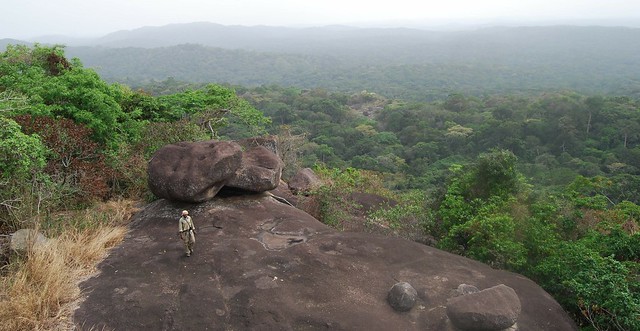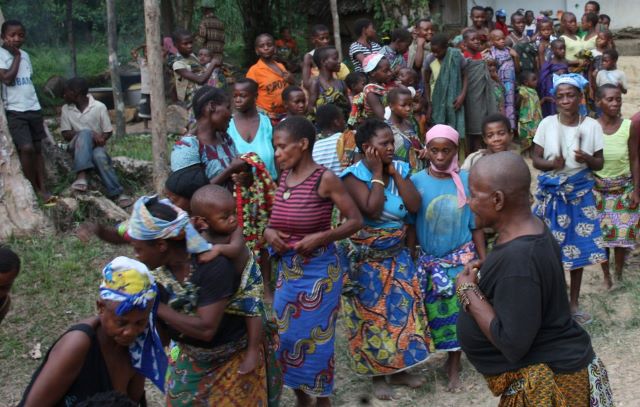As the COVID-19 crisis unfolds around the world, the Ebola epidemic in northeastern DR Congo appears to finally be winding down. A report dated March 25 on the website of Trócaire, the overseas development agency of the Irish Catholic church, provides information about the fight against Ebola and the ways the Mbuti are reacting to that crisis.

The author of the report, Garry Walsh, traveled to the Ituri Forest in the Congo in January to learn first hand what progress the people, including the Mbuti, have been making. He clearly hopes the lessons of the Ebola fight may have an impact on the worldwide responses to the coronavirus pandemic. For after 18 months of working with Congolese people to help them change their ways, it appears as if the fight against Ebola is nearly won.
The author writes that Ebola initially springs from animals to humans when the latter feed on infected prey, an origin that is comparable to the coronavirus in people. Walsh hangs out with Alundo Matope, a Mbuti leader in the local village and an enthusiastic beekeeper who enjoys showing off his hives to the visitor. Alundo tells the others in the village to stop hunting forest animals, to never touch dead bodies, and to always wash their hands.
Trócaire provided Alundo with his two beehives to encourage him to stop going into the forest in search of wild bees. The agency encourages him to earn money through the sale of honey. People are learning to use hand-washing stations that the charities have provided. The Mbuti children are drumming along with the song they sing that deals with the Ebola campaign. The kids clearly know the words by heart. Walsh concludes that the fight against Ebola is working, in this village at least.

Walsh devotes the rest of his report to the work the charity has been doing to combat Ebola—developing the infrastructure of sanitation, training doctors, mounting information campaigns, working with community leaders, and so on. He concludes that the fight is almost over. The number of new cases has dropped dramatically. The last patient was released from a treatment facility two weeks before. People are holding their breath, hoping it is finally over. Two-thirds of the 2,200 people in the DR Congo who contracted Ebola died from it.
But if Ebola is beaten, the first cases of COVID-19 have been reported in the country. We can hope that the lessons Alundo and the other Mbuti have learned about sanitation from the health workers will continue to be part of their lives.